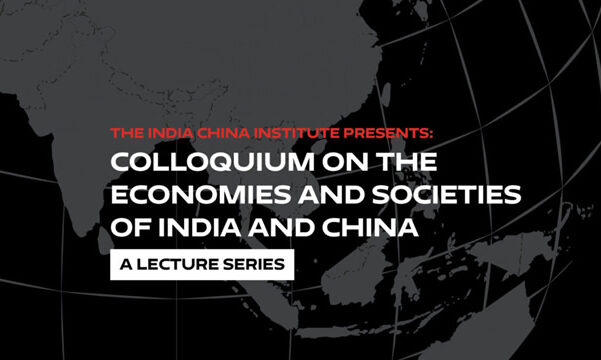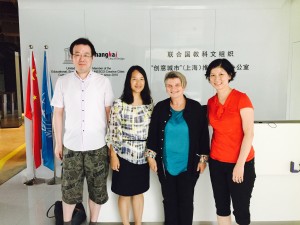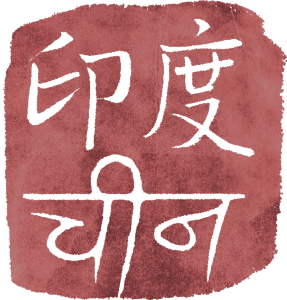Economies and Societies, 2013-2018
The Economies and Societies Initiative supported scholarship on the multiple ways that the economies and societies of India and China challenged common assumptions in academic and policy realms derived from Western or European scholarly traditions and posited as “universal theories” regarding growth, modernity, and social and political change.
From 2013-2018 ICI convened a series of initiatives under the “Economies and Societies” rubric.
Spatial Politics of Work, 2014-17
The Spatial Politics of Work (SPW) was an initiative of the India China Institute developed out of a collaboration between faculty in multiple divisions of the university, and led by faculty members Victoria Hattam, Brian McGrath, Laura Liu, Rama Chorprash, Christina Moon, and Lei Ping. ICI Senior Director Ashok Gurung, ICI Co-Director Mark Frazier, and Professor Vamsi Vakhulabharanam of the University of Massachusetts also participated.
As new modes of work emerged in the twenty-first century, was the world entering a third industrial revolution? If so, what are its parameters, limitations, and aspirations? What specific aspects of manufacturing and making are being reconfigured to create new urban forms? Who is benefitting and who is losing from the shifting spatial politics of work?
The Spatial Politics of Work (SPW) group engaged with these questions from the premise that contemporary problems and future possibilities are embedded within design-labor relations. The group undertook multi-modal research and design interactions at specific work sites in Shenzhen, Shanghai, Bangalore, and Brooklyn. They drew upon ICI’s network of scholars and creative-practitioners to produce workshops and conferences at which issues of design and labor were addressed.
Urbanizers of China and India, 2014-17
Urbanizers of China and India: Agency, Power, and Form in the (Re)making of Asian Cities was a multi-year engagement to explore new dimensions of inequality and the pursuit of social justice from the perspective of those who are making the 21st century cities of India and China. The project examined the “urbanizers,” or agents of urbanization, such as migrants, developers, entrepreneurs, artists, homeowners, regulators, planners and others, whose interactions produce the city, including services, workplaces, and settlement patterns that offer possibilities both to reduce and to produce particular forms of inequality. A conference, “New Urban Forms, New Fields of Inquiry: China and India,” was held at The New School in 2015.
Colloquium on the Economies and Societies of India and China, 2014-2018
ICI hosted a series of research presentations in 2014-2018 called The Colloquium on the Economies and Societies of India and China (CESIC).This was a broad program to encourage research collaboration on the social and political formations that have both informed and emerged from the capitalisms of China and India. Research talks included both contemporary and historical manifestations of capitalisms in India and China.
CESIC gave scholars the opportunity to present a recent research paper for comment and discussion at a monthly colloquium of invited participants. The scholars, drawn from around the world, circulated the paper in advance for participants to read and suggest feedback during the colloquium.
This initiative was supported by a generous grant from
The Starr Foundation.



